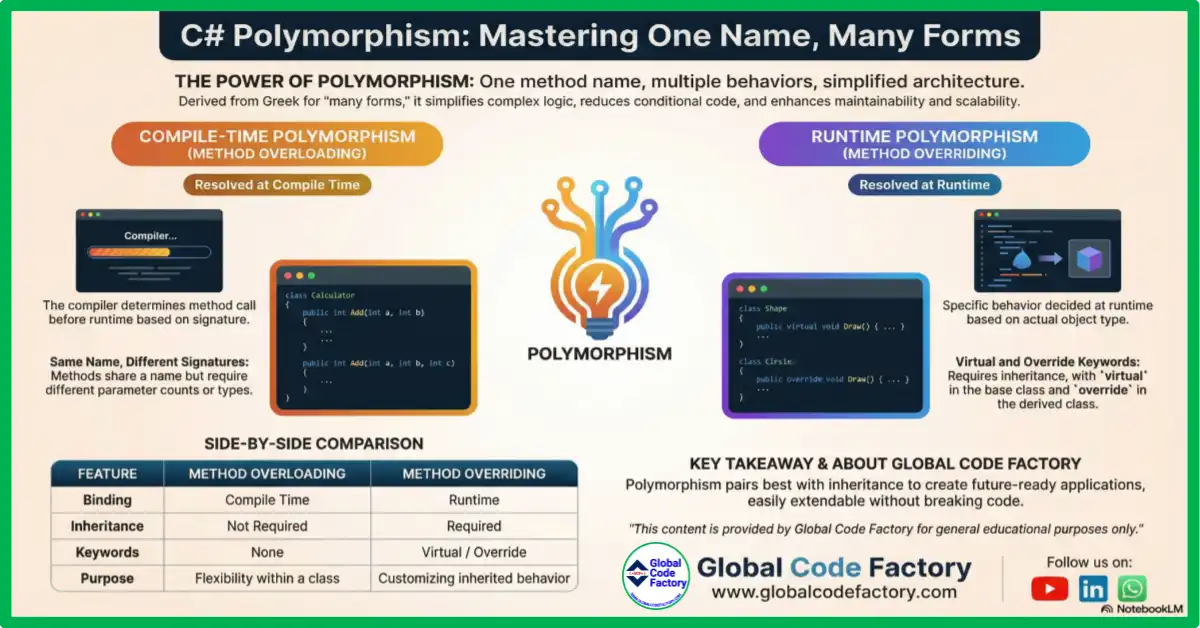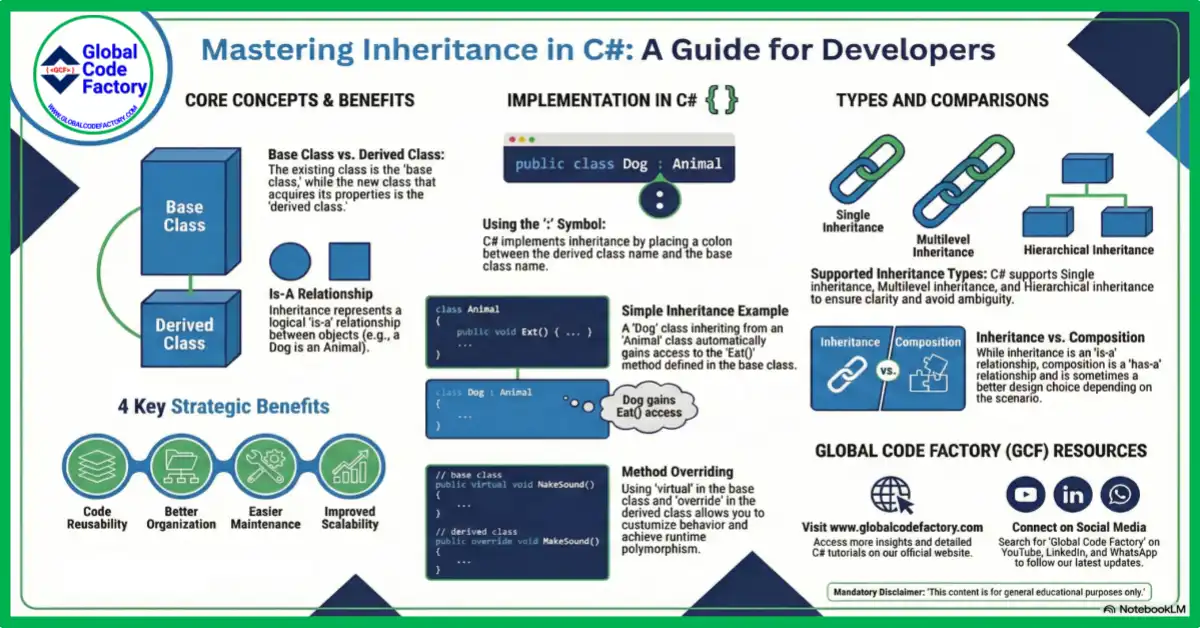Constructor in C# Explained with Examples for Beginners
Introduction of Constructor in C#
Constructor in C# is a special method that helps set up objects of a class. Constructors run automatically when you create a new object, unlike regular methods. This helps save time by setting up default values, making sure the object is ready to use, and making the code easier to read.
To begin with, In this guide, we will look at what a constructor is, the different types of constructors, and how to use them in real projects. Altogether, this knowledge will make you more confident in C# programming.
What is a Constructor in C#?
It is a method that has the same name as the class. It does not return any value, not even void. When you create a new object, the constructor runs to set the initial values for the object’s properties.
For Example:
The constructor sets the brand value when you create the object. As a result, you don’t need extra initialization code.
Types of Constructors in C#
Default Constructor
- Has no parameters.
- Sets values to default.
Parameterized Constructor
- Takes parameters to set specific values.
Copy Constructor
- Makes a new object by copying data from another object.
Static Constructor
- Runs once before you create any object.
- Useful for setting up static data.
As has been noted, each constructor type has a unique purpose. Moreover, using them wisely ensures cleaner code.
Why Use Constructors in C#?
- They make code easier to read.
- They reduce the need for repetitive initialization code.
- They offer flexibility with custom values.
- They help make object-oriented programming more effective.
After all, constructors simplify development. Furthermore, they improve consistency across your projects.
Constructor Overloading in C#
C# allows multiple constructors in a class as long as their parameter lists are different. This is called constructor overloading.
This flexibility helps developers create objects with different sets of data. In other words, constructor overloading supports multiple ways to initialize objects.
Developer Perspective
From a developer’s point of view, constructors are important for writing clear, reusable, and scalable code. Not only do they improve readability, but also reduce repetitive tasks.
In summary, beginners often search for C# constructor examples, making it a popular topic in programming tutorials.
Key Takeaways
- A constructor in C# automatically sets up objects.
- There are several types, including default, parameterized, copy, and static constructors.
- Constructors do not have a return type.
- Constructor overloading lets you have multiple ways to initialize objects.
- Use constructors to make object management easier and reduce repetitive code.
All in all, constructors are the backbone of object initialization in C#.
Frequently Asked Questions
Q1: What is the main purpose of a constructor in C#?
A constructor in C# sets up class objects and assigns default or custom values.
Q2: Can a constructor have a return type in C#?
No, constructors do not have any return type, not even void.
Q3: What is the difference between a constructor and a method in C#?
A method performs tasks when you call it, whereas a constructor runs automatically when you create an object.
Q4: Can we overload constructors in C#?
Yes, constructor overloading allows multiple constructors with different parameters.
Q5: What is a static constructor used for?
A static constructor is used to initialize static data and runs only once per class.







